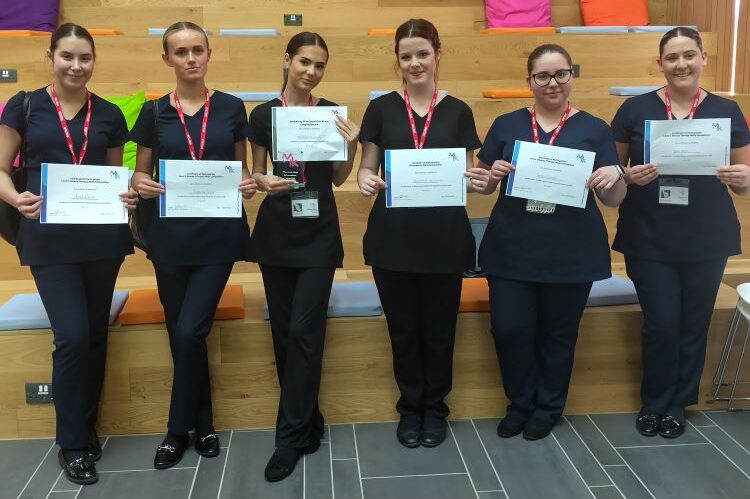Developing Teachers Through Communities of Practice

The professional development (PD) of teachers is vital and can directly improve classroom practice and the subsequent outcomes of students. The EEF report (2021) sets out excellent guidance for institutions to consider to enhance approaches to PD, and certainly something that has informed what we do at The Sheffield College. The four themes identifying 14 mechanisms are especially useful for anyone involved in the PD of teachers.
Appreciating the importance of the mechanisms alluded to above, the significance of culture should not be underestimated. Culture is required for supporting learning and development overtime (Darling-Hammond, Hyler, & Gardner, 2017), with culture including values and the underlying set of norms and traditions to create the emotional ethos at an institution (Peterson & Deal, 2009). For educational institutions, creating a culture based on curiosity and development through reflection is a likely starting point, although much easier to do on paper than in practice. Moreover, for culture to harvest learning and enable teachers to engage in meaningful development, trust is a vital resource to support teachers with ongoing development and the learning of new habits to enhance practice (Wiliam, 2016). Timperley (2008) also discussed the importance of trust in her extensive review into successful professional learning, as well as stating that there must be multiple opportunities for teachers to learn something new and reflect on the impact of this in practice.
In recognition of the evidence-base for teacher PD, this academic year at The Sheffield College we have implemented communities of practice as a means of both developing culture, and some of the key mechanisms in the EEF report. Communities of practice are not new, are defined by Wenger et al (2002, p. 4) as ‘groups of people who share a concern, a set of problems, or a passion about a topic, and who deepen their knowledge and expertise in this area by interacting on an ongoing basis’. When considering this with more recent research into the use of observation in education (Edgington, 2013; O’Leary, 2013 a; O’Leary, 2013 b; O’Leary & Brooks, 2014) communities of practice promote an honest approach to discussion and reflection and offer the potential to develop teachers’ holistic ideology to their practice.
With a grounding in evidence and applying this to our own setting, we have developed communities of practice throughout the academic year with success, knowing through our own reflections we can improve the process further in the future. The implementation of communities of practice has been based on three cycles, with each cycle having two sessions. The guiding principles of the communities of practice were based on the established literature, with three essential elements:
- Domain: This refers to the shared area of interest or subject matter that the community is passionate about and committed to. It gives the community of practice its identity and purpose.
- Community: The group of people who engage in shared learning and knowledge exchange, building relationships and developing a sense of belonging over time.
- Practice: The collective knowledge, skills, and resources that members share, refine, and develop through their participation. This includes tools, stories, experiences, and techniques that the community uses to address challenges in the domain.
Due to the nature of communities of practice, one of the most positive aspects is the freedom of staff to collaborate outside of their normal departments, and on topics (domains) that they wish to explore further. For example, and as expected in the current climate, artificial intelligence (AI) was the largest community in the first cycle (term one). We have also had staff collaborating on the Walkthru resources which we use at the college, and as we move into the third cycle this term, we are using communities to explore and develop sustainability in the curriculum.
To date, the implementation of communities of practice has been positive at The Sheffield College and certainly supports mutual developmental opportunities that can be driven by teachers (Armour & Makopoulou, 2012; Boocock, 2014). As with everything, it is one part of the bigger picture of professional development, and the community aspect delineates issues with perceived power that can sometimes be apparent in professional development and observations (O’Leary , 2020), but there will likely be the need for other approaches in combination with communities of practice, especially in larger institutions, for example instructional coaching. However, it has proven positive this academic year and added to the holistic approach for the PD of teachers at our institution. The communities have in some ways developed into social entities, and the fact that the communities have supported learning for everyone involved, irrespective of experience (Wenger, McDermott, & Snyder, 2002) has also been a great advantage. One of my favourite anecdotal reflections was walking through a corridor on campus and hearing three staff discussing something they had recently come across in a community of practice, which is fantastic and what we want, teachers conversing about their classroom practice with other teachers.
By Dr Steven Spence, Assistant Principal for Teaching, Learning, Assessment and Innovation at The Sheffield College
References/Further Reading
Armour, K. M., & Makopoulou, K. (2012). Great expectations: Teacher learning in a national professional development programme. Teaching and Teacher Education 28, 336-346.
Boocock, A. (2014). Increased success rates in an FE college: the product of a rational or a performance college culture? Journal of Education and Work 27:4, 351-371.
Darling-Hammond, L., Hyler, M. E., & Gardner, M. (2017). Effective Teacher Professional Development. Palo Alto, CA: Learning Policy Institute.
Edgington, U. (2013). Performativity and affectivity: Lesson observations in England’s Further Education colleges. Management in Education 0:0, 1-8.
O’Leary , M. (2020). Classroom Observation: A Guide to the Effective Observation of Teaching and Learning (2nd ed.). London: Routledge.
O’Leary, M. (2013 a). Surveillance, performativity and normalised practice: the use and impact of graded lesson observations in Further Education colleges. Journal of Further and Higher Education 37:5, 694-714.
O’Leary, M. (2013 b). Expansive and restrivtive approaches to professionalism in FE colleges: the observation of teaching and learning as a case in point. Research in Post-Compulsory Education 18:4, 348-364.
O’Leary, M., & Brooks, V. (2014). Rasing the stakes: classroom observation in the further education sector in England. Professional Development in Education 40: 4, 530-545.
Peterson, K., & Deal, T. (2009). The Shaping School Culture Fieldbook (2nd ed.). San Francisco: Jossey-Bass Publishers.
Timperley, H. (2008, International Academy of Education, International Bureau of Education). Teacher professional learning and development . Retrieved December 5th, 2020, from http://www.ibe.unesco.org/fileadmin/user_upload/Publications/Educational_Practices/EdPractices_18.pdf
Wenger, E. (1998). Communities of practice: Learning, meaning, and identity. Cambridge: Cambridge University Press.
Wenger, E., McDermott, R., & Snyder, W. M. (2002). Cultivating communities of practice. A guide to managing knowledge. Cambridge: Harvard Business School Press.
Wiliam, D. (2016). Leadership for Teacher Learning. Creating a Culture Where All Teachers Improve so That All Students Succeed. Florida: Learning Sciences International.












Responses